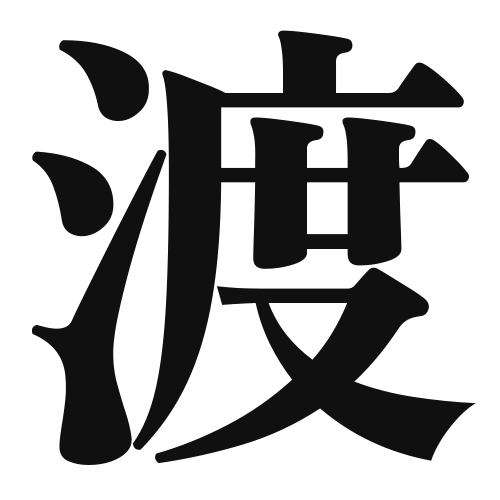1. Overview of Meaning
The kanji “渡” (wataru) primarily means “to cross” or “to ferry.” It is often used in contexts involving crossing rivers, streets, or other obstacles.
2. Formation and Radical
Formation of the Kanji: The kanji “渡” is a compound character (会意文字) that combines elements representing “water” and “to go,” symbolizing the act of crossing over water.
Radical: The radical for “渡” is “氵” (water), which indicates its connection to water-related actions.
3. Examples of Usage
Common Words and Phrases:
- 渡る (wataru) – to cross
- 渡船 (toshen) – ferry
- 渡米 (tobei) – to go to America
Example Sentences in Daily Conversation:
- 橋を渡ると、すぐに公園があります。 (Hashi o wataru to, sugu ni kōen ga arimasu.) – If you cross the bridge, there is a park right away.
- 彼は毎日川を渡って学校に行きます。 (Kare wa mainichi kawa o watatte gakkō ni ikimasu.) – He crosses the river every day to go to school.
4. Synonyms and Antonyms
Similar Kanji:
- 越 (koeru) – to surpass or to cross over, often used in a broader sense than “渡.”
- 行く (iku) – to go, which is more general and does not specifically imply crossing.
Antonyms:
- 留まる (tomaru) – to stay or remain, which is the opposite of moving or crossing.
5. Cultural and Historical Background
Connection to Japanese Culture: The concept of crossing is significant in Japanese culture, often symbolizing transitions or new beginnings, such as moving from one stage of life to another.
Proverbs and Idioms:
- 渡りに船 (watari ni fune) – literally “a boat when crossing,” meaning to receive help at a crucial moment.
